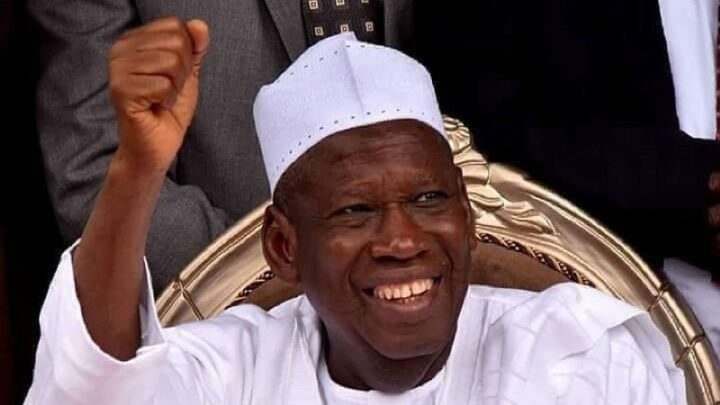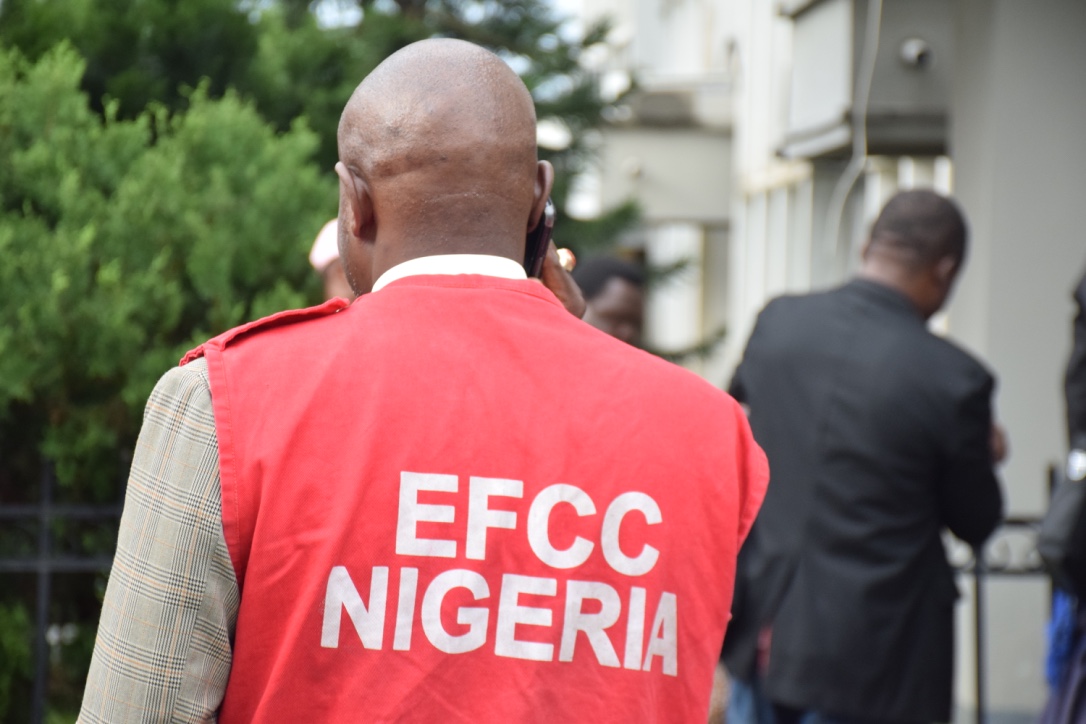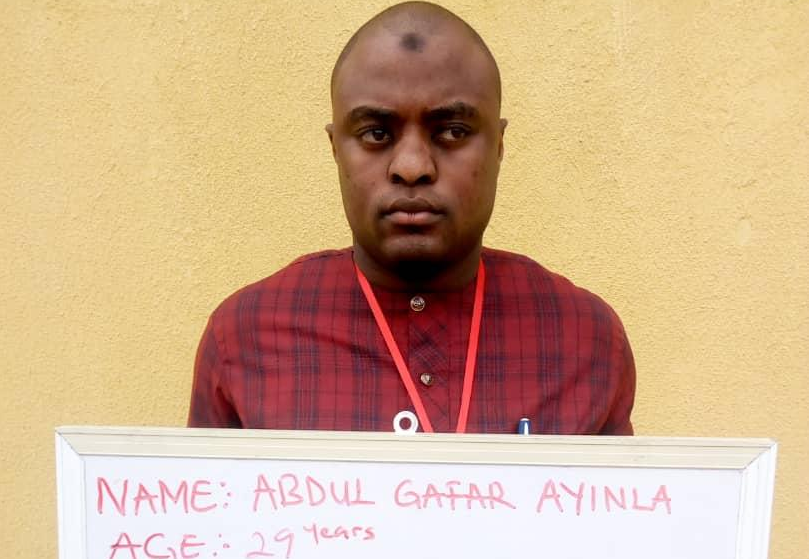Politics in Nigeria is currently at the most primate and that is very sad. It is 20 years after the nation’s latest return to democracy, but it remains Herculean to find an improvement in the democratic culture of participants especially as it concerns tolerating dissent, an essential ingredient of democratic governance.
Governor Abdullahi Ganduje of Kano State is the latest perfect example of the unbridled misuse of power that Nigeria’s political elite frequently engages in to the detriment of everything that may advance the course of democracy and her consequent development.
Within just a few days, Ganduje and his lackeys at the Kano State House of Assembly received a petition calling for an additional four first class emirate councils in the state, allowed the same to pass through all the processes of lawmaking, got the bill passed into law as requested by the petitioner and finally, sealed with full governorship assent. That is for a state that has failed to domesticate the Child Rights Law since Nigeria adopted the Convention on the Rights of Children 16 years ago! Now, that is curious!
But the story does not end there. In the same whiff, the governor went on to install four new emirs in the newly created emirates namely: Rano, Bichi, Karaye and Gaya. All in defiance of a court order, which he said came too late in the day to affect the machinery that he already set in motion.
Advertisement
And here, Ganduje may be right in some sense although chances that anyone would give him the benefit of the doubt on this front are almost non-existent. State governors in Nigeria are legendary for the deliberate subjugation of the legislature and judiciary, the two other arms of government with which they work with. As a result, his behaviour is again popping as characteristic of the totalitarian nature of actors in Nigeria’s democracy.
The depravity in the actions under discussions is further accentuated by widespread feelers about the unhealthy relationship that exists between Governor Ganduje and the erstwhile paramount ruler of Kano, Emir Muhammad Sanusi II. This situation, which the governor has not made the feeblest attempt to repudiate, vitiates any suggestion that the enactment of the Kano Emirs Appointment and Deposition Amendment Law, 2019 and the speedy assent it got from the governor are altruistic.
Speculations are rife that the breakdown in the relationship between the immediate past Governor of Kano State, Senator Rabiu Musa Kwankwaso and Ganduje, his successor, has pitted the latter and Sanusi against each other. The emir who is known for his outspokenness even in his days as Governor of the Central Bank of Nigeria, is believed to have pitted his tent with Kwankwaso’s Peoples Democratic Party. He is also believed to have made a couple of comments speculated to indicate a vote of no confidence in the ability of the All Progressives Congress-led Federal Government to change Nigeria positively.
Advertisement
This, of course, means that Ganduje did not get Sanusi’s support during the elections in March. As it turned out, the governor laboured more than he would have wanted for his second term and that must have spurred him into a commitment to get his own pound of flesh back from anyone that must have contributed to the humiliation that he nearly suffered at the polls. This is believed to have inspired the attack on the traditional cum spiritual leader of Kano through the whittling down of his powers and what many consider as warning signs of a possible dethronement.
But Ganduje’s actions reveal three unfortunate things which have continued to impede the capacity of Nigeria’s political class to deliver good governance.
The first is their inability for self-introspection! The average Nigerian politician carries on with an incredible sense of self-importance and infallibility. Were it not so, rather than blame anyone for contributing to his near-loss in the last election, Ganduje would have sat himself down, probed his own mind and asked hard questions about why a people over whom he had been governor over for four years would give him such a difficult time in his bid to secure a second term.
But these people never see themselves as capable of error. Because of the enormous powers at the disposal of the executive, especially in the states, governors see themselves as the gods of their states and assistant gods of all other states but theirs. And so, when they get close to failing like it happened to the Kano State Governor, they must seek for scapegoats and crush them with finality.
Advertisement
The second worrying thing about Nigerian politicians is their slim mindset that makes it impossible for them to separate politics from governance. They do not recognise that the very essence of democracy, on which platform they were elected into office, is the unalloyed right of every individual to decide on who to support during elections. But that upon elections into public office, they have accepted the responsibility to lead everyone whether they voted for them or not!
Unfortunately, the minds of most Nigerian leaders are too immature to compartmentalise and understand the difference between politics and policies. While the former stratifies and allows people to actualise their individual political preferences, policies of government are one such that everyone, regardless of their political persuasions, should benefit. But the rain of the Nigerian political class is that which beats one side and spares the other side of its freshness.
Finally, the politician here cares for himself only. He has no regard for the fate of other Nigerians, the tradition of the people or institutions of the state! This is why they would go to any length to break down the resolve of people who oppose them, trample on traditions that stand in the way of their ambitions and manipulate, dismantle, even destroy institutions for selfish reasons.
They would force decisions that favour them down the throats of the citizenry but go on to claim that it was all in the interest of the people. Hear Ganduje, for instance, claiming that creating the new emirates was the desire for the people. You then want to ask, when and how were the people of Kano consulted before the exercise was rushed through?
Advertisement
It is indeed possible that the reform of a 1,000-year-old traditional and spiritual institution like the Kano Emirate would do the people good. But that decision should be that of the people emanating from a painstaking consensus-seeking process in which everyone knows what is at stake and is prepared for it.
While this is not an exoneration of Sanusi from wrongdoing, the emir himself having exhibited publicly his own vulnerabilities on more than one occasion, Ganduje should also realise that Sanusi is the ordinary traditional ruler, who can be programmed to dance to any and every tune the governor beats. Given his gumption and exposure, this emir is the one any governor genuinely interested in the development of his state should cultivate and work with towards changing the unenviable situation of the people of the state.
Advertisement
But that is not the outlook of the Nigerian politician. Rather than empower the people, they would render powerless and voiceless. Even when they speak and cast their votes one way, politicians ensure that those votes are manipulated the other way. The politics that is played in Nigeria is an eye for an eye, where people win by force and the winner takes all. It is politics that neither does good nor has any prospect of doing good.
That is why Nigerians must take a cue from the words of wisdom spoken by former French leader and statesman, Charles de Gaulle, to the effect that politics is too serious a matter to be left in the hands of politicians. The people must take their destiny in their own hands otherwise these politicians cannot take the country anywhere good.
Advertisement
Adedokun tweets @niranadedokun
Advertisement
Add a comment







